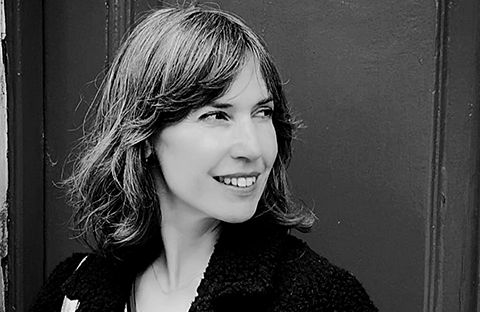This is an action-research project based on participatory methodologies, through which it is intended to help each person living in an IASS residence to develop a quality life, a chosen life, without leaving the community to which they belong and with the support and care they need.
Cristina Buiza

PhD in Health Psychology from th Autonomous University of Madrid, with the doctoral thesis "Evaluation and conceptualization of cognitive functioning in advanced Alzheimer's disease", Master in Gerontology from the University of the Basque Country, Master in Clinical Neuropsychology from the Autonomous University of Barcelona, and Master in Contextual and Third Generation Therapies from the ACT Institute of Madrid.
Cristina has a twenty-five year professional career in the field of elderly people, with special interest in advancing the transformation of care and support for people living with dementia, combining research with intervention and clinical practice in both residential and hospital settings. She is the author of numerous publications on the subject in scientific journals and conferences at national and international level.
Projects
Sustraiak is a project by Matia aimed at transforming the care model towards Person-Centred Care (PCC), ensuring that each individual can make decisions about their life and support based on their values, wishes, and needs.
This project aims to generate an itinerary for the transformation of residential centers towards Person-Centered Care.
This project is a proposal for innovation that through training, accompaniment and research, aims to help older people living in IASS residences to develop their life project in spaces that ensure their dignity and rights, maintaining the meaning of their day to day life as they have done in thei
New technological solutions for the optimisation of indoor air quality and minimisation of airborne transmission of pathogens
At the end of 2019, the 'Dementia in Cultural Mediation' project was launched in Odense (Denmark), an initiative within the framework of the European Erasmus + programme, which seeks to gather information about the different artistic and cultural activities involving people with dementia in four
The main objective of the project is to research, develop and study the application of virtual reality solutions aimed at generating well-being in the elderly.
From a functional point of view, frailty is a state of high vulnerability in which the ability of frail elderly people to adapt to adverse events such as a fall or the flu is reduced, leading to functional deterioration and dependence.
Publications
Participation in forums
Blog posts
Dementia is a major public health challenge in relation to population aging, being one of the main causes of disability and dependence.
It would be the beginning of this century when, from the Memory Unit of Matia, we wondered what we could do to improve intervention with people who have
I recently read in "The New Yorker" an interesting article entitled "The Comforting Fictions of Dementia Care", which I recommend reading.
Coinciding with the celebration, this 29th April, of the European Day of Intergenerational Solidarity, in this entry we briefly analyse the twenty-one ye
Tutoriales
LIBE (List of Indicators of Well-being) is an instrument created to assess the well-being of people with dementia, and thus be able to evaluate the impact on them of both the environment in which they live and the practices that are generated around them.
Webinars
Dementia is a major public health challenge in relation to population ageing, being one of the main causes of disability and dependence.
"Building wellbeing from the meaningful and the everyday", an event jointly organised by Zahartzaroa and Matia Fundazioa, in which a new collaborative research space will be presented, as well as the first product housed in this space, a new guide to meaningful everyday activities for people with
The development of care approaches centred on people's wishes and autonomy entails the need for resources and strategies that promote it.
